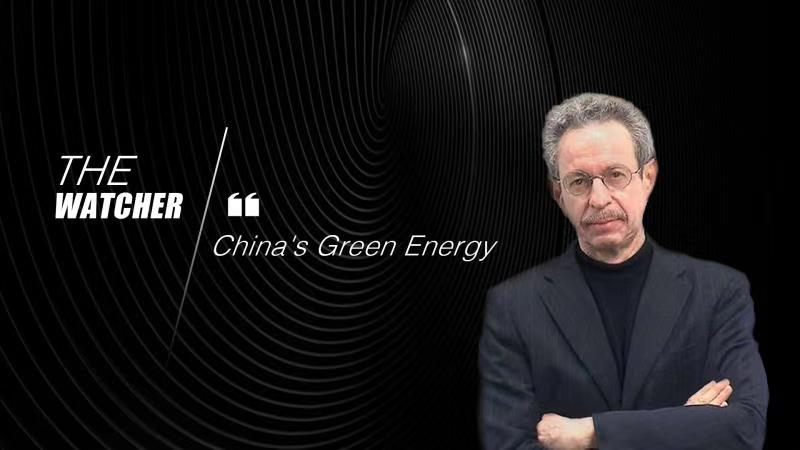
Opinions
19:54, 25-Dec-2018
The Watcher: What are West's motives in hyping China's green commitments?
Updated
19:00, 28-Dec-2018
Robert Lawrence Kuhn
03:35

I'm Robert Lawrence Kuhn and here's what I'm watching. There have been foreboding headlines in the international media about China's aspirations in green energy — “China assuming the mantle of leadership of green energy”; “China on track to lead in renewables, as the U.S. retreats”; “China wants to dominate the world's green energy markets.”
It sure sounds scary, like something bad is happening, a cause for alarm. Think about it, though. What's so bad about leading progress in green technologies that make the world economy more sustainable? What's so alarming about competition to save the planet?
The world is unsustainable. Rampant pollution is causing untold illnesses on a mass scale, incurring incalculable costs. Climate change will devastate the planet, inundating coastal cities, evaporating trillions of dollars from the world GDP.
China itself has every reason to focus on green technology. According to numerous sources, such as the World Resources Institute and the European Commission, China is the world's biggest emitter of greenhouse gases.
In 2016, the WTO estimated that every year in China, polluted air kills more than one million people. Pledging to increase the share of renewable or nuclear energy to 20 percent, China is now on track to lead international investment in the sector.
According to the report by the Institute for Energy Economics and Financial Analysis, China is setting itself up to dominate green tech sectors globally over the next several decades, including renewables, battery storage, and electric vehicles.
In solar, China has overtaken the U.S. and Germany to become the number one exporter of environmental goods and services. A decade ago, China accounted for less than one percent of the world's solar capacity. By the end of 2017, it accounted for one third.
The geographical balance of renewable investment has shifted. In 2017, China invested over 130 billion USD into renewable energy, accounting for almost 40 percent of the total global clean energy investment, as well as 46 percent of the world's new installed capacity.
Forecasts have China being responsible for 58 percent of global growth in solar capacity, as well as 60 percent of wind growth and 65 percent of hydroelectric. Speed bumps remain, of course, that could impede the speed of China's renewable growth.
For example, the cost of capital for renewable projects remains higher than traditional energy projects by about 20 to 30 percent. But China's drive towards renewable energy generates ancillary benefits, including technological leapfrog, indigenous innovation, and geopolitical advantages.
Assuming China maintains its mission and makes good on its commitment to share its green advances with the world — if China takes the risk, China deserves the reward.
I'm keeping watch; I'm Robert Lawrence Kuhn.
(If you want to contribute and have specific expertise, please contact us at opinions@cgtn.com.)

SITEMAP
Copyright © 2018 CGTN. Beijing ICP prepared NO.16065310-3
Copyright © 2018 CGTN. Beijing ICP prepared NO.16065310-3